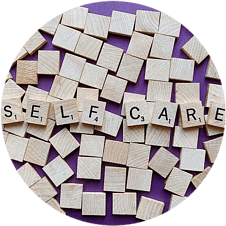Is It Ok To Be Selfish?- There Are Times

Is it okay to be selfish? Indeed, it’s a thought-provoking question. However, there are many misconceptions surrounding the idea of selfishness. Some people may equate self-care with selfishness, while others associate having personal boundaries with self-centered behavior. While there is some validity to these beliefs, not all of them are entirely accurate. The purpose of this article is to dispel these misunderstandings about selfishness and explore whether there are potential benefits to being selfish. This is not an attempt to justify selfishness, but rather to illustrate how it can contribute to healthier relationships, improved well-being, increased self-esteem, and the ability to pursue one’s passions. When practiced in a balanced and healthy way, selfishness can be a powerful tool for leading a more fulfilling life.

The Real Meaning of Selfishness
I think it’s important to provide a definition of selfishness. This includes the reasons why it is essential for living a happy, loving, and healthy life. Initially, it’s crucial to grasp how embracing selfishness can result in a profoundly joyful existence.
Selfishness is characterized as being only concerned with oneself. To be more specific, this relates to your holistic wellness, encompassing your physical, emotional, and mental health. While it can seem complex at times, the core idea is quite straightforward. We won’t explore it in great depth here, but it essentially involves giving precedence to your personal interests and the circumstances in your life.
The right dorsolateral prefrontal cortex (DLPFC) is the part of the brain that controls cognition and decision-making.
Within the right dorsolateral prefrontal cortex, various cortical regions work in synergy to encompass the right hemisphere of the brain. When these regions synchronize, they collectively form the entirety of the right hemisphere, which is responsible for overseeing cognitive functions. The specific functions that are active at any given moment influence the actions you take. Humans are inherently driven to complete tasks, irrespective of the obstacles they may encounter.
Here’s a reading of the selfish experiment that was done revealing where selfishness comes from Brain’s Selfish Spot Revealed.
“The essence of selfishness: nurturing oneself while recognizing our shared humanity.”
The vedana is also associated with selfishness, in addition to the right dorsolateral prefrontal cortex. Vedana has played a role in molding every facet of your existence. Our life trajectory is shaped by how we perceive our sensations. In the end, vedana serves as the fundamental underpinning of self-care, providing us with the guidance we need to make ongoing decisions.
Selfishness also encompasses living and participating in activities with a primary emphasis on one’s personal interests. In some cases, self-centeredness becomes a pervasive mindset that influences every aspect of an individual’s life, whether it aligns with the mindset of prioritizing one’s own needs or the mindset of helping others. It’s important to recognize that each choice you make has consequences, which can sometimes be complex to comprehend fully.
Finally, selfishness can be viewed as a form of self-care. As an example, placing utmost importance on one’s physical and mental health, regardless of the sacrifices or efforts required.
Selfishness (Good vs. Bad)
Did you know that there are two distinct categories of selfishness? Selfishness can be classified into two types: the positive and the negative. Positive selfishness involves tending to your own needs to enhance your capacity to care for others, while negative selfishness entails self-care solely for personal benefit. Transforming negative selfishness can be a formidable task, often influenced by genetic factors or learned behaviors.
Embracing the positive aspect of selfishness opens the door to boundless opportunities. This is because happiness and well-being are universal aspirations, and negativity is not an appealing option. Those who practice positive selfishness typically lead more joyful and healthier lives compared to individuals who are hurriedly self-centered. Nevertheless, it’s feasible to reshape your self-identity, although it constitutes a prolonged and demanding process. Enlisting the support of a therapist or mentor significantly enhances your prospects for successfully undergoing this transformation.
“Selfishness: a double-edged sword, a source of personal growth when tempered with empathy, but a destructive force when it disregards others.”
There are numerous facts about good and bad selfishness. So here’s a checklist of things to look out for.
- Being selfless means taking action to ensure your well-being while minimizing harm to those around you. On the other hand, negative selfishness entails disregarding others and concentrating solely on personal gain in life.
- Prioritizing your physical, mental, and emotional well-being in a way that benefits both you and others is a constructive form of selfishness. Conversely, individuals who solely focus on their improvement, even if it harms others, embody the negative type of selfishness.
- Establishing and maintaining boundaries is a crucial component of positive self-care. This involves the ability to say no when necessary to safeguard your well-being. In contrast, negative selfishness involves disregarding boundaries and saying yes solely for personal gain.
In the end, one’s ability for self-care shapes every aspect of their persona. It boils down to the ability to take care of oneself, seek personal happiness, and then offer assistance to those in one’s circle.
When it’s Acceptable to be Selfish
Therefore, this inquiry may appear somewhat unorthodox: Is it ever justifiable to display any kind of self-centered behavior? The answer is in the affirmative. It is entirely acceptable to prioritize your own interests when it doesn’t inflict harm on others, and it’s even more commendable if it benefits you without causing any harm to others. Despite the convictions of certain individuals who perceive actions geared toward personal benefit as ethically objectionable, this is not the case at all.
Defining personal standards, boundaries, and values can enhance an individual’s overall well-being. It involves developing a profound self-awareness and living in harmony with that understanding of oneself.
In the end, happiness is something that everyone is entitled to, and it frequently requires the requisite efforts to achieve. This means living in alignment with your personal boundaries, capabilities, and dreams, while also crafting new possibilities. Crucially, this should be accomplished without causing harm and should ultimately foster personal empowerment and resilience.
How to Be More Selfish
To tap into the potential of self-care, you must first grasp the importance of placing yourself as a priority. There is no inherent wrongdoing in giving precedence to your own well-being, as it ultimately equips you to provide better care for others. Keeping this in mind, I’ve compiled some valuable wisdom from the domain of self-care that I think can also prove advantageous to you.
1. Learn to say no:
Empowerment is closely linked to the capacity to reject, yet in the context of interpersonal relationships, it’s vital to exercise discretion in your denials. Declining requests enable you to maintain your boundaries and assert your essential requirements, all the while reaffirming your dedication to your values and priorities. This is far from being a negative standpoint to adopt.
While saying no can be highly advantageous, it can also pose significant challenges. If you or someone you’re familiar with struggles with saying no… Then I recommend reading my book review on “The Power of a Positive No”
2. Stop seeking validation:
When it comes to selfishness, you don’t care what other people think and begin learning to live the life you want to live. This is undeniably a positive attribute, and acknowledging your self-worth is essential. Rather than being excessively preoccupied with the opinions of others, initiate the necessary steps. There’s no wrongdoing in not adhering to others’ anticipations regarding the course you should be following in your life.
3. Make time for yourself:
Frequently, we become heavily absorbed in meeting the demands of others and overlook our own needs. Instead of consistently placing others first, set aside some time for yourself. Whether it entails pampering yourself or simply enjoying a peaceful shower, recognize that this is a moment for self-centeredness, not centered on others. I suggest dedicating a minimum of one hour each day to participate in self-care practices.
4. Don’t feel guilty:
Be aware that some individuals may not endorse your self-care routines, but these individuals may be accustomed to having their own wishes accommodated. Therefore, there’s no reason to feel remorseful about it. Whether it aligns with the desires of others or not, remain authentic to yourself.
5. Know your needs and desires:
In life, it’s crucial to actively pursue your exact wants and aspirations, whether it involves embarking on international journeys or acquiring a new vehicle. The timing can be uncertain, so it’s essential to capitalize on opportunities as they present themselves. Furthermore, it’s imperative to consistently follow your interests. Decisions should be made promptly, ideally within a 17-second window, and should be in harmony with what brings you happiness.
Remember that you are a human being, and it is entirely permissible to occasionally give priority to your own requirements. There will be times when you act in your own self-interest. To wholeheartedly adopt self-care, it’s vital to initially recognize and accept that it is completely natural and advantageous to do so.
Are you looking to know why some people are so selfish? Then check out my article “Why Are People so Selfish?”
The Completion
In the grand scheme of things, it’s vital to understand not only why self-care is not just acceptable but also how it profoundly enhances your well-being and overall happiness. Engaging in self-care in a positive manner can ultimately lead to increased happiness, better health, and sustained success. Consequently, individuals may sometimes stumble in their pursuit of what they believe is best for them. However, it’s imperative to learn to decline when necessary, allocate guilt-free time for self-care, prioritize your own needs and desires, and relinquish the constant quest for external validation. Once you start implementing these changes, you will observe significant improvements in your life.
If you have any questions or concerns about the legitimacy of self-care, please don’t hesitate to leave a comment. Leveraging my vast experience, I’m here and eager to offer assistance and advice.
Related: Why Are People So Selfish?-The True Reason
Happiness: The Ultimate Birthright
Are You Able To Accept Happiness? 11 Practical Actions You Can Do To Make It Happen
Kiersti writes on self-love and personal development professionally. Over the past ten or so years, she has studied self-love and personal growth. Visit https://womansdailyneeds.com/ to learn more about what she does, and like her on Facebook at https://facebook.com/womansdailyneeds to keep up with her.



